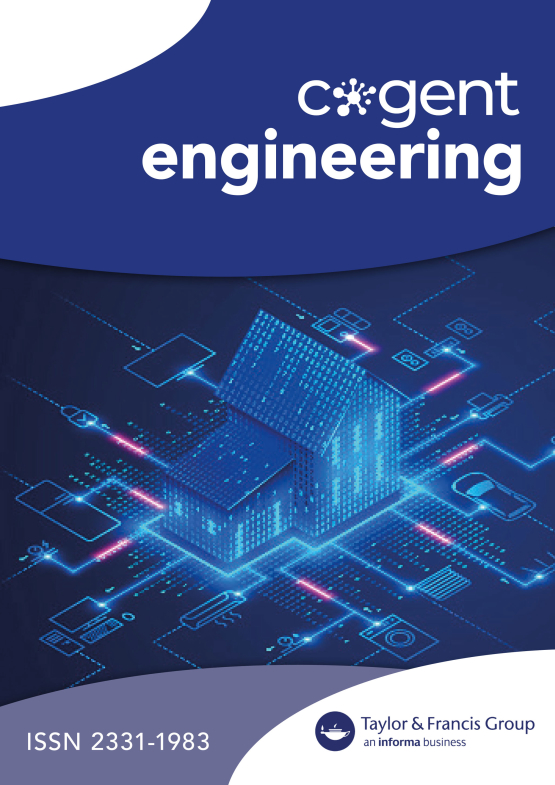Submit a Manuscript to the Journal
Cogent Engineering
For a Special Issue on
Evolving Artificial Intelligence-based Ultrasound Imaging for Neuro-Oncology
Manuscript deadline
30 November 2024

Special Issue Editor(s)
Dr. Pietro Hiram Guzzi,
University "Magna Græcia" of Catanzaro, Catanzaro, Italy
[email protected]
Evolving Artificial Intelligence-based Ultrasound Imaging for Neuro-Oncology
Ultrasound imaging is a medical tool that better aids physicians figure out, diagnosing, and treating medical conditions. Advances in ultrasound are required for safety, low cost, patient tolerability, and system mobility. Since there is a demand for the non-invasive option in obtaining an accurate image to efficiently diagnose the types of neuro-oncology diseases affecting the patient, novel techniques and advancements are required in ultrasound imaging since its radiation-free and an extremely sensitive imaging modality. In addition, it implements rapid results and reduces the risk of infections with increased patient experience. Thus, in ultrasound-based real-time imaging artificial intelligence plays a key role to improve the applications and techniques to attain better utilities.
Neuro-oncology advances are vital for acquiring a better knowledge of complex challenges in the categorization of central nervous system (CNS) tumors. The precision of diagnostic and therapeutic methods is crucial to uplifting the neuro-oncology through cutting-edge research in new technologies, that can pave the way for breakthroughs in high-quality treatments and efficient patient cares with all forms of brain or spinal tumors. Particularized neurological disorder analysis based on in-depth imaging developments and techniques like ultrasound computed tomography (USCT), magnetic resonance imaging (MRI), diffusion tensor imaging (DTI), etc., aid in scrutinizing the causes, symptoms, and earlier diagnosis of diseases for better brain mapping.
Technologies are heading towards a new revolution in neuro-oncology for the prevention, diagnosis, causes, symptoms, and treatment of cancers of the central nervous system (CNS) but challenges still exist. Enhanced ultrasound can play a key part in diagnosing and figuring out pre-operative intelligence which is critically challenging and more developments are required to mitigate medical errors in neuro-oncology. Evolving artificial intelligence methods are significant for effective treatment monitoring and to aid personalized medicine since the centralization of critical care is necessary for neuro-oncology treatments. The applications of AI technology ought to be developed user-friendly and be authorized for clinical use effectively which creates a drastic transfer in ultrasound imaging for analyzing neuro-oncology and a promising future for cancer treatments.
The special issue goal is to receive contributions based on evolving artificial intelligence in neuro-oncology concerning novel ultrasound imaging techniques and applications with an in-depth focus on errorless treatments.
Potential topics include but are not limited to the following:
- AI-based cutting-edge ultrasound imaging techniques and biomarkers for surgical neuro-oncology and applications
- AI/DL algorithms for neuro-oncological ultrasound-based radiomics in medical imaging for precision
- Evolving AI prospects in contrast-enhanced ultrasounds and new imaging tools for neuro-oncology
- AI technologies in automatic segmentation of ultrasound imaging for neuro-oncology
- Computational ultrasound neuroimaging and strategies for optimized analysis of CNS disease
- Machine learning and AI in screening glioma and advancing cancer surveillance
- ML with computer vision for automating ultrasound molecular imaging and diagnostics for neuro-oncology
- Real-time challenges and trends of artificial intelligence in neuro-oncological ultrasound imaging and applications
- Impacts and improved 3D ultrasound imaging techniques for targeted radiation therapy (e.g., 3D-CRT, IMRT, proton, etc.,)
- ML/AL-based applications, analysis, and validation for ultrasound neuroimaging modalities in epilepsy
- Deep learning for precise ultrasound image detection of brain metastasis and future control techniques
Looking to Publish your Research?
Find out how to publish your research open access with Taylor & Francis Group.
Choose open access